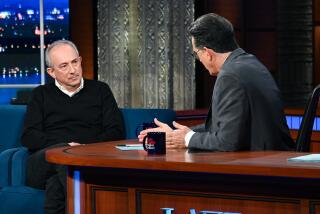Plagiarizing poet withdraws from contest. Wait, poets plagiarize?
The poet C.J. Allen has withdrawn his poem, “Explaining the Plot of Blade Runner to My Mother Who Has Alzheimers,” from the shortlist of Britain’s Forward Poetry prize after admitting to plagiarizing some early poems. The award for single best poem, the category Allen was shortlisted for, comes with a prize of about $1,600.
Poet Matthew Welton discovered that Allen had plagiarized a number of his poems after attending a reading of Allen’s last year. In a post on his publisher Carcanet’s blog, Welton compares his own poems to Allen’s plagiarized versions.
Jeannette Winterson, a judge for the Forward Poetry Prize, told the Bookseller that she has conflicted feelings about Allen’s poem being withdrawn from consideration. “The poem entered for the Forward Prizes is clean. It’s a vexed question – if you plagiarise a earlier poem, are you always then a plagiarist, can you never be trusted? Should we judge the poet or the poem?”
It’s a fair question, given the surprising recent rash of plagiarism in poetry. This year there have been a rash of publicly discussed instances of poets plagiarizing other’s work.
Andrew Slattery, an Australian poet, was stripped of three poetry prizes after it came to light that he had liberally borrowed lines from Seamus Heanney, Charles Bukowski, Sylvia Plath and Emily Dickinson, though not in a single poem in its entirety. Earlier this year, two British poets, David R. Morgan and Christian Ward, were each outed as plagiarists.
In his post describing his experience of the ordeal, Welton writes that “the idea of writing is very closely related to the idea of belonging to a community of writers.” For some, it would seem, the boundaries inside of that community are apparently just a little too loose.
ALSO:
Some notes from the 2013 Brooklyn Book Festival
Jack Kerouac’s ‘Big Sur’ is coming to movie screens: See the trailer
‘Your Fatwa Does Not Apply Here’ examines resisting fundamentalism
More to Read
Sign up for our Book Club newsletter
Get the latest news, events and more from the Los Angeles Times Book Club, and help us get L.A. reading and talking.
You may occasionally receive promotional content from the Los Angeles Times.






